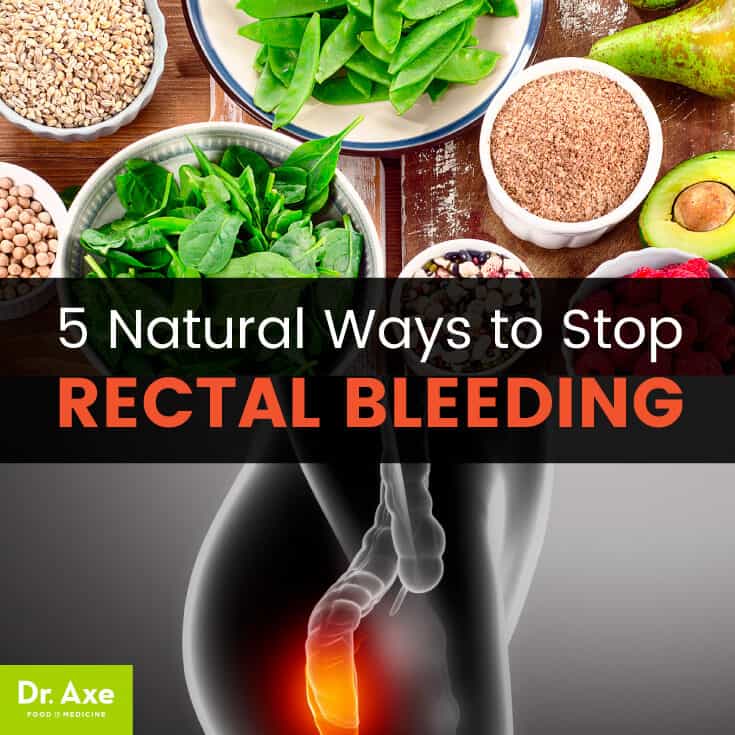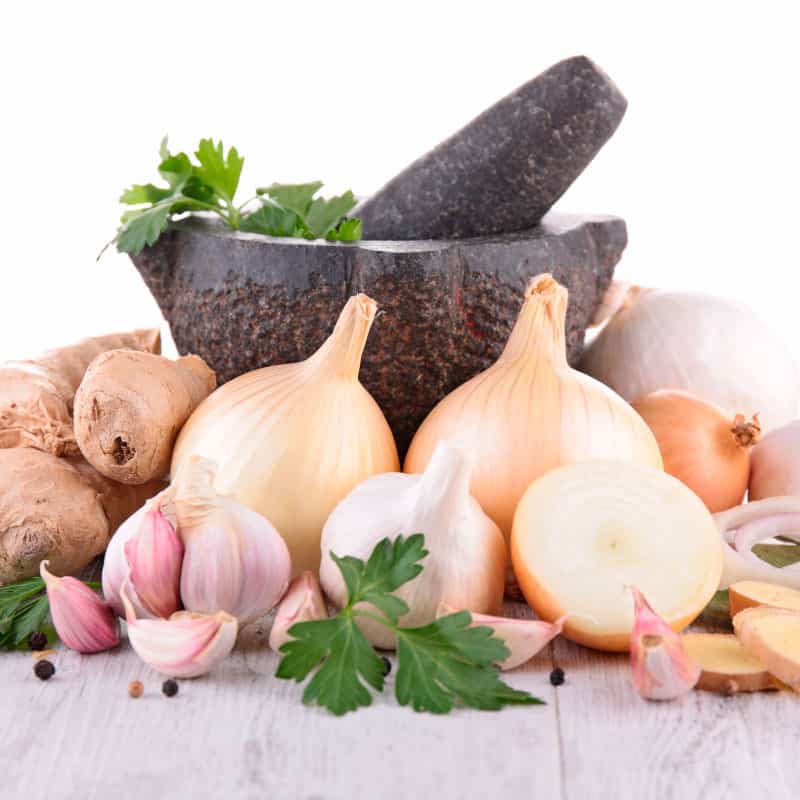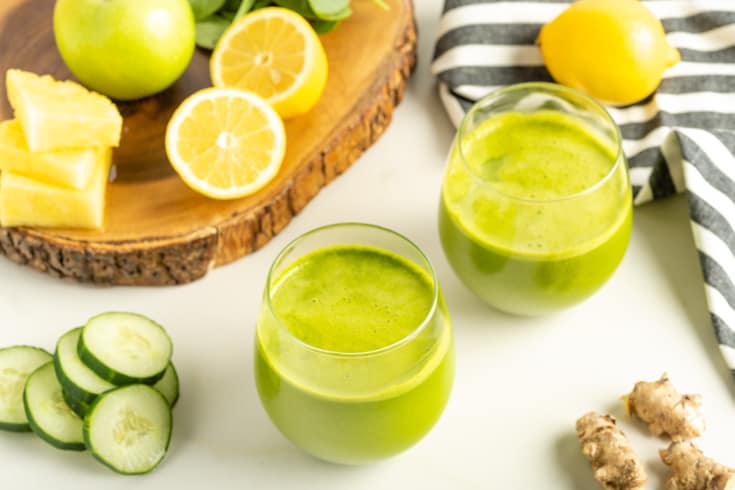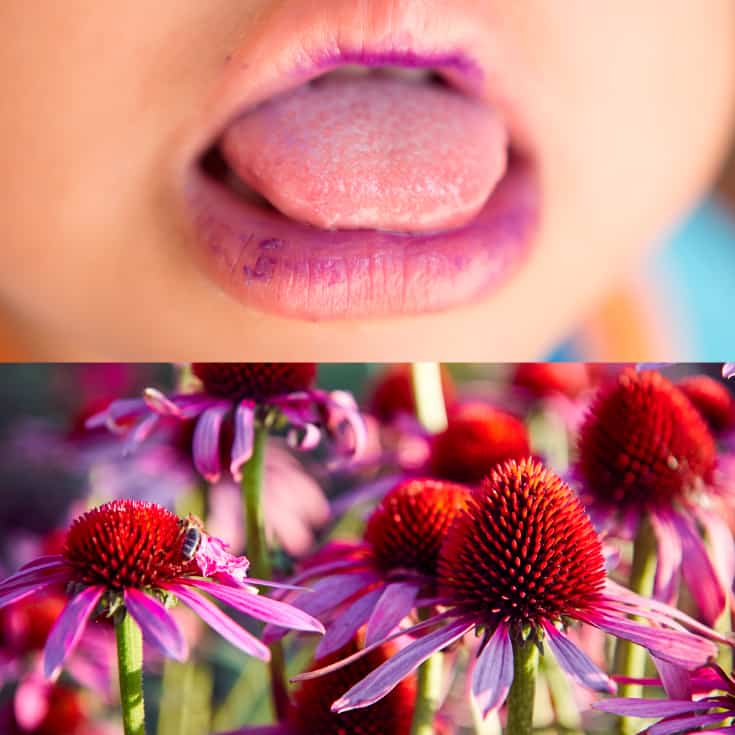This Dr. Axe content is medically reviewed or fact checked to ensure factually accurate information.
With strict editorial sourcing guidelines, we only link to academic research institutions, reputable media sites and, when research is available, medically peer-reviewed studies. Note that the numbers in parentheses (1, 2, etc.) are clickable links to these studies.
The information in our articles is NOT intended to replace a one-on-one relationship with a qualified health care professional and is not intended as medical advice.
This article is based on scientific evidence, written by experts and fact checked by our trained editorial staff. Note that the numbers in parentheses (1, 2, etc.) are clickable links to medically peer-reviewed studies.
Our team includes licensed nutritionists and dietitians, certified health education specialists, as well as certified strength and conditioning specialists, personal trainers and corrective exercise specialists. Our team aims to be not only thorough with its research, but also objective and unbiased.
The information in our articles is NOT intended to replace a one-on-one relationship with a qualified health care professional and is not intended as medical advice.
Rectal Bleeding Causes + 5 Natural Ways to Find Relief
April 13, 2017

If you’ve been pooping blood recently, hopefully you haven’t been ignoring it like it’s no big deal. Seeing bright red blood on the toilet paper or in the toilet bowl is definitely a sign that something is not exactly right in your body at that moment, particularly in your gastrointestinal tract. Sometimes it may just be that you’ve been struggling with constipation or maybe it’s hemorrhoid symptoms, but sometimes the cause of rectal bleeding can be more serious. (1)
If you see bright blood in your stool, try to stay calm because hopefully it’s nothing serious. Rectal bleeding is often caused by a small tear down there or hard stools, but rectal bleeding can also be caused by more serious health problems like cancer.
It’s really important to identify the root cause of rectal bleeding. If you know it’s something not so serious, then there an array of natural remedies to choose from, but if it is more serious then it’s important to know that cause too. When it comes to rectal bleeding, you definitely need to know the cause to properly address it and get rid of it. Let’s talk about how to figure out the cause and the best natural treatment approach for your particular case of rectal bleeding.
What Is Rectal Bleeding?
The rectum is the last portion of the large bowel that ends just before the anus. Someone is said to have rectal bleeding when he or she is passing blood rectally. In other words, blood is coming out of the anus. Usually the blood is mixed with stool, resulting in a bloody stool.
Rectal bleeding, or bleeding from rectum, is a type of gastrointestinal or GI bleeding. When you have true rectal bleeding (rather than blood in your stool as a result of bleeding somewhere else in the digestive system), it’s often very mild and will stop on its own within a short amount of time. However, rectal bleeding can also be moderate to severe and, of course, this is much more concerning and warrants immediate medical care. (2)
How do you know when you have rectal bleeding? Some people see drops of blood on the toilet paper or they notice discoloration of the water in the toilet bowl. Some people also notice that they have bloody stools. The shade of that bloody stool is actually quite meaningful and can indicate whether or not the bleeding is true rectal bleeding or if it is originating elsewhere in the digestive tract.
Make sure to take note of the color of the blood you see when you go to the bathroom. Bright red blood usually means the bleeding is low in the colon or rectum. Dark red or maroon colored blood most often shows that the source of the bleeding is higher in the colon or in the small bowel. Black tarry stools (also called “melena”) is often indicative of GI bleeding in the stomach, such as from bleeding stomach ulcers. (3)
Rectal Bleeding Symptoms
Symptoms of rectal bleeding can include the following: (4)
- Bright red blood in stool or on stool
- Bright red blood on underwear or toilet paper
- Bright red blood in the toilet bowl
- Rectal pain and/or pressure
- A bloody stool which can be red, maroon or black in color
- A stool with a dark, tar-like appearance (another sign of a bloody stool)
With moderate or severe anal bleeding, someone can also experience feelings of dizziness or lightheadedness, confusion or even fainting due to blood loss. If you have bloody diarrhea, then it is important to know that bloody diarrhea can be caused by bleeding anywhere in the digestive tract, starting from the mouth all the way to the anus. Bloody diarrhea is typically a warning sign of gastrointestinal or GI bleed resulting from an injury or a disease, such as a bacterial infection. (5)
Causes & Risk Factors
Blood in poop is one of the most tell-tale signs of rectal bleeding. It can often be quite alarming, especially if you’ve never experienced it before. Try to stay calm. There are actually quite a number of possible causes of rectal bleeding. Much of the time, it is one of the symptoms of hemorrhoids making itself visible.
Most common bleeding from the anus causes: (6)
- A tear in the skin of the anus (also called an anal fissure)
- Hemorrhoids
- Chronic constipation
- Hard stools
The less common rectal bleeding causes include:
- Ulcerative colitis
- Ischemic colitis (inflammation in the colon caused by reduced blood flow)
- Diarrhea (to the point that it causes anal irritation)
- Rectal prolapse
- Solitary rectal ulcer syndrome (a sore on the wall of the rectum)
- Anal cancer
- Colon polyps
- Colon cancer
- Angiodysplasia (abnormalities in the blood vessels near intestines)
- Cholecystitis (gallbladder inflammation)
- Diverticulosis
- Ganglion cyst (colon inflammation caused by an infection)
- Radiation treatment
It is possible to have rectal bleeding and not know it. Some rectal bleeding is only visible if a stool sample is put under a microscope. A stool guaiac test can be conducted to find invisible blood in a stool specimen.

Conventional Treatment
If you are concerned about your rectal bleeding, your rectal bleeding is moderate to severe, or your rectal bleeding lasts for longer than one to two days, see your doctor. If it’s moderate to severe, then you should actually seek urgent medical care. Most of the time, if you’re under the age of 40 and the cause of your rectal bleeding is obvious (like constipation or hemorrhoids), then your doctor may not suggest any additional testing. If you’re over the age of 40, then a lot of conventional doctors will recommend a colonoscopy, or some other testing, to rule out serious rectal bleeding causes like cancer. (18)
Both conventional and holistic practitioners will recommend that you monitor your symptoms. So keep track of the color of the blood you see as well as the consistency of your stools. If you have any other symptoms (such as rectal pain, etc.) make a note of all of those, too, and when they occurred. Depending on what your doctor thinks, conventional treatment can likely involve a rectal exam as well as a colonoscopy or other testing. This is necessary if the cause of the rectal bleeding can not otherwise be determined by the doctor. For example, if it’s not an obvious case of bleeding hemorrhoids. (19)
5 Natural Ways to Stop Rectal Bleeding
Depending on the root cause of your rectal bleeding, you’ll want to choose the natural remedy that best fits your situation. These natural remedies are all natural rectal bleeding preventatives as well.
1. Relieve Constipation
If constipation is the health issue behind your rectal bleeding, then you’ll want to check out natural constipation relief remedies. When things are moving easily then rectal bleeding is much less likely due to constipation. How do you avoid constipation or get on the other side of it and get “regular” again? You definitely need to look at your diet. Are you getting enough fiber? Are you drinking enough water? These are two very simple things that are absolutely key to natural constipation relief. High fiber foods that help to relieve constipation include green vegetables, beans, squash, prunes and figs. Warm bone broths and hot herbal teas are also great.
There are foods you’ll want to avoid if constipation is an issue. These include things like refined flour, pasteurized dairy products, alcohol and fried foods. These are all food choices that make constipation more likely or worse.
Supplementing with probiotics and eating more fermented foods also really helps to relieve constipation. Exercise, especially rebounding, a.k.a. jumping on a mini-trampoline, helps to stimulate the bowels and lymphatic system. Light exercise can also support bowel function, including stretching, walking, jogging, yoga, swimming or dancing.
2. Calm Bleeding Hemorrhoids
If hemorrhoids are the cause of your rectal breeding, then natural remedies for treating hemorrhoids are the way to go. Avoiding constipation is one helpful way to avoid and help heal hemorrhoids. You’ll also want to follow a diet similar to the anti-constipation diet. Definitely make sure to steer clear of alcohol and spicy foods, which can really make a case of hemorrhoids that much more intolerable and rectal bleeding even more likely.
There are also some very key habits to practice to treat hemorrhoids and the resulting rectal bleeding. Make sure you do not sit too long on the toilet reading or looking at your cellphone while you’re trying to go to the bathroom. This only equates to more time straining and that will just make hemorrhoids and rectal bleeding worse.
You want to make sure that you don’t leave any stool behind when you wipe in general, and especially when you have hemorrhoids, because this only makes hemorrhoids angrier and more irritated. However, do not cleanse yourself roughly or use soaps that contain harsh chemicals, alcohol or perfumes. Instead, use plain water to wipe yourself and then dry your bottom afterward.
A sitz bath, which involves sitting in warm water for 10 minutes, twice daily, is helpful to patients with anal itching, aching or burning. You may also want to try this DIY Hemorrhoid Cream with Turmeric & Tea Tree Oil.
3. Improve Ulcerative Colitis
If your anal bleeding stems from your struggle with ulcerative colitis, there are some awesome natural remedies for ulcerative colitis. For starters, it’s important to follow a healing diet and avoid problematic trigger foods like dairy products, spicy foods and refined sugar. Foods rich in omega 3 fatty acids and probiotics reduce inflammation and help with nutrient absorption.
Relaxation is also a key aspect of getting ulcerative colitis and any resulting rectal bleeding under control. When you relax, it calms the body and allows it to digest food more easily. I suggest finding calming activities you can do daily, like deep breathing and stretching, which will help to improve circulation and appropriately regulate digestion.
4. Soften Stools
Is your poop normal? Since hard stools can make it more likely to have rectal bleeding, you want to do what you can to avoid them. A hard stool not only can cause straining on the toilet, which can lead to hemorrhoids, it can also result in a tear in the skin of the anus (an anal fissure), which is a common cause of rectal bleeding.
Here are some of the best foods and beverages that act as natural laxatives and help to ensure your stools are not too hard:
- Prune juice and other prune products
- Water
- Psyllium husk
- Aloe vera
- Chia seeds
- Flaxseed and flaxseed oil
- Leafy green vegetables like kale, mustard greens and spinach
- High-fiber fruit like figs, apples, pears and berries
- Probiotic-rich foods like coconut kefir, kombucha, sauerkraut and kimchi
- Coconut water (which also helps with dehydration)
5. Reduce Stress
Reducing stress is truly that universal health improver. No matter the root of your rectal bleeding, reducing your stress levels will help to promote healing and decrease bodily inflammation. Scientific research has clearly shown that chronic stress is linked to the human body losing its natural ability to properly control the inflammatory response. (8)
Precautions
When rectal bleeding is moderate or worse, severe, then the blood loss can become too much and result in additional symptoms, including dizziness, weakness, fainting or coming close to fainting, orthostatic hypotension (a decrease in blood pressure when going from the sitting or lying to standing) or other signs of low blood pressure. (19)
Seek emergency care if you have rectal bleeding that is heavy or continuous, also includes anal pain, or you also feel severe cramping or pain in your abdomen. In rare situations, rectal bleeding can cause such an excessive loss of blood from a person’s body that he or she goes into shock. It is recommended that you call 911 if you or someone you know has severe rectal bleeding, as well as any of the following signs of shock: (20)
- Dizziness or lightheadedness after standing up
- Very fast, shallow breathing
- Fainting
- Confusion
- Blurry vision
- Nausea
- Low urine output
- Cold, clammy, pale skin
If you’re currently being treated for any health condition, or are currently taking any medication, check with your doctor before adding any new foods or natural remedies to your daily routine.
I also want to note that if you see a red tint to your stools, make sure to recall if you ate beets recently. Beet consumption can temporarily make urine or stools reddish in color.
Final Thoughts
Rectal bleeding can be scary and if the bleeding is moderate to severe, by all means you should skip natural remedies and go straight to emergency medical care. Much of the time, however, rectal bleeding is faint and doesn’t have a serious cause. With a minor case of rectal bleeding and a natural approach, the bleeding can subside quickly.
It’s extremely helpful to identify the root of your rectal bleeding to choose the best natural approach. In general, all of these natural remedies I just discussed can also help to prevent rectal bleeding in the first place. I hope you don’t see any blood in your poop anytime soon, but if you do, don’t just ignore it when there are so many ways to resolve it.





